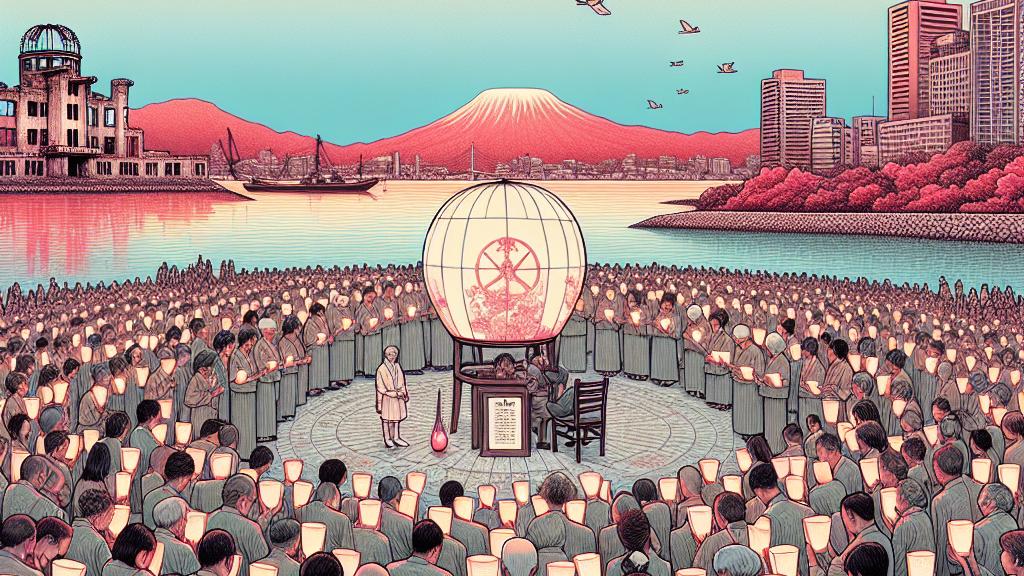Nagasaki's Diplomatic Dilemma: Israel Uninvited to Peace Ceremony!
Overview
- Nagasaki officially excludes Israel from the upcoming annual peace ceremony.
- The decision reflects concerns over Middle East conflicts and aims for a peaceful atmosphere.
- Hiroshima's invitation to Israel highlights contrasting approaches to diplomacy in Japan.

Significance of the Peace Ceremony in Nagasaki
The Nagasaki peace ceremony, held every year on August 9, commemorates the tragic atomic bombing that left its mark on history in 1945. This event draws attention not only to the loss of life but also to the importance of advocating for world peace and nuclear disarmament. In 2024, however, the ceremony has taken on a new nuance as Nagasaki's mayor, Shiro Suzuki, stated that Israel's ambassador will not be invited. This choice is underscored by a desire to ensure the ceremony remains somber and peaceful, steering clear of potential heated discussions surrounding ongoing conflicts in the Middle East—which might detract from the day’s intended focus on remembrance.
Analyzing the Reasons for Israel's Omission
Mayor Suzuki emphasized that the decision to exclude the Israeli ambassador, Gilad Cohen, was not politically motivated, but rather a measure taken to avoid stirring controversy during a sensitive remembrance event. Given the ongoing Israeli-Palestinian conflict and the recent escalation of violence in Gaza following Hamas attacks, there were legitimate fears regarding how the presence of an Israeli representative might incite unrest. This reflects broader tensions that influence such commemorative events, with community and civic leaders in Nagasaki prioritizing the sanctity and focus of the ceremony over international diplomatic relations, which can often be tumultuous and complex.
Implications for Japan's International Relations
The decision to not invite Israel to the Nagasaki ceremony stands in contrast to Hiroshima's approach, where Israel has been invited to participate, although with calls for immediate ceasefires in place. This dichotomy between the two cities raises essential discussions about how local governments navigate international tensions while honoring historical memories. Hiroshima’s open invitation encourages dialogue and cooperation, reflecting a belief in the necessity of engagement even amid conflict, while Nagasaki’s cautious stance prioritizes peace and reflection on its own tragic past. Together, these contrasting approaches shed light on Japan’s multifaceted diplomatic landscape, illustrating how deeply-rooted historical events can shape present-day international relations and peace efforts.

Loading...